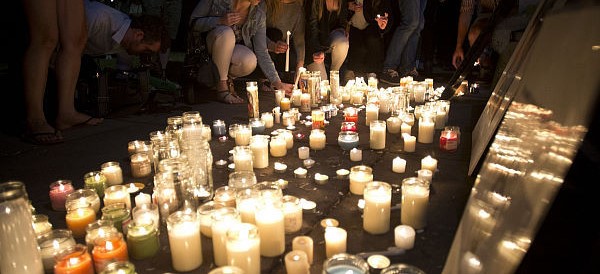Ireland is known for many things: its emerald beauty, its turbulent history, and its jovial people. It’s known for the clichés – the Guinness and the leprauchauns – and for the little-known elements of being Irish, the inability to finish a phone conversation without a succession of byes, the overuse of grand.
These are harmless stereotypes, but the Irish also suffer more unpleasant ones. I won’t bother criticising the distasteful article published in the New York Times this summer, as it was so obviously inappropriate. But while deeply unfair in that context, it was just another expression of an unpleasant stereotype that dogs the Irish. Characterised as rowdy, typified as excessive drinkers, this reputation precedes us when we go abroad, becoming the single defining element of our nation in others’ eyes.
This reputation is funny and unjust by turns, but it shouldn’t paint us collectively, nor should it define us. And it certainly shouldn’t have been the topic of discussion when reporting on a tragic incident which took the lives of six students with bright futures ahead. A nation’s stereotypes are not their sole defining features, and our reputation for having the craic – and the associated drunkenness and craziness this involves – should not be the sole thing we are known for.
Every time I leave Ireland, I come home in love with my country, my people.
After all, if one goes abroad and tells a foreigner that they are Irish, the response is overwhelmingly positive, accompanied by exclamations of “oh the Irish are so friendly!” or “you guys certainly know how to have a good time.” Every time I leave Ireland, I come home in love with my country, my people, due to the positive response I get. We are known as one of the friendliest, most welcoming nations in the world, and the favourable reputation that our personalities uphold is what brings us together whether we’re home or abroad.
We’re renowned for rowdy behaviour and excessive drinking, and we’re renowned for friendliness too. But we aren’t particularly known for our solidarity, our resilience in the face of tragedy. And yet a nation that has survived famine and emigration and foreign rule must by right be resilient to tough times. Ireland has suffered in the past by virtue of its position as a small island in a very large sea, and its people today respond to suffering with tenacity and characteristic good cheer.
Solidarity is something that we ought to be known for, far more than rowdiness or tomfoolery.
This was clear following the devastation in California this summer. That tragedy rocked the country, shocking people from all walks of life. Some of us knew those involved. All of us felt the horror of association, sympathy for suffering, a feeling of personal attachment to those who shared a nationality with us. At that time of tragedy, everyone in Ireland felt for the victims and sympathised with those suffering, regardless of where they were located in the world. The solidarity, the element of “family” that characterises our small island, was seen so clearly in the messages of support, the outpouring of grief and compassion that followed in the days and weeks after the tragedy. Solidarity is something that we ought to be known for, far more than rowdiness or tomfoolery, because it’s something that is common to all Irish people, and not just a few.
This solidarity has been evident not just in devastation, but all of this year. So many Irish groups reached out to the LGBTQ community during the Marriage Equality referendum; and every year national radio stations wish Leaving and Junior Certificate students the “very best of luck” in their exams in early June. Solidarity is what defines the Irish people. Resilience is what we should be known for. Negative stereotypes only serve to narrow the perception of our nation, when the truth is that we are welcoming and hardy and cohesive, particularly when times are tough.







